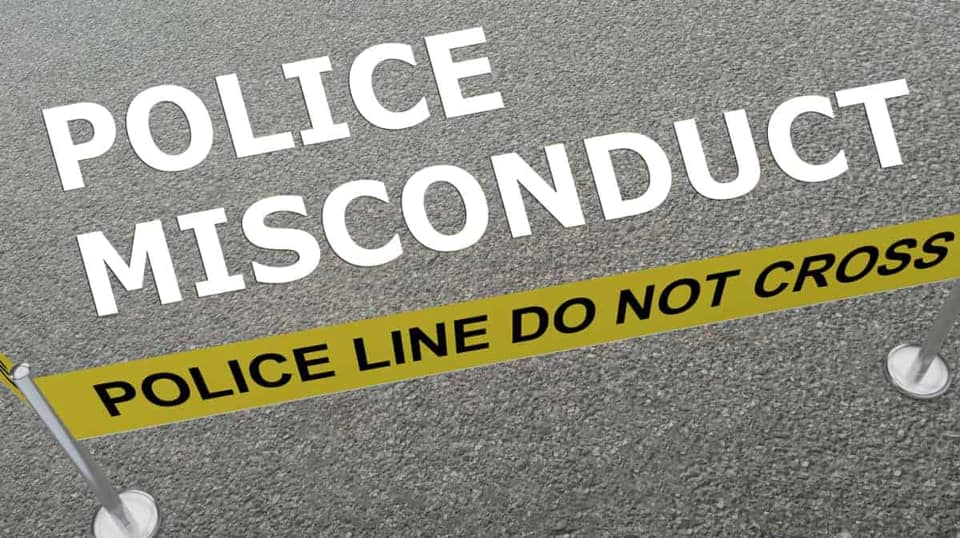
A critical victory for open records and the public's right to know today.
In Kentucky State Police v
Lawrence Trageser, the Kentucky Court of Appeals reaffirmed long-standing precedent on the public's right of access to the underlying files compiled by a law enforcement agency in its investigation into allegations of misconduct leveled against police officers.
http://opinions.kycourts.net/coa/2017-CA-000750.pdf
The precedent affirmed in KSP v Trageser is nearly as old as the open records law itself. It is a precedent that public agencies, particularly law enforcement agencies and especially the Kentucky State Police, have ignored for many years.
In the early eighties, the courts recognized that, in cases involving public employee misconduct, the public must be given access to the complaint and final disciplinary action taken (including the decision to take no action).
https://casetext.com/case/city-of-louisville-v-courier-journal-etc
https://casetext.com/case/kentucky-st-bd-of-med-v-courier-journal
Critical to today's opinion, the courts also held that the public must be given notes or recommendation adopted by the Commissioner of KSP (or the equivalent ultimate decision maker in any other public agency) "as part of his final action." Once final action is taken, the courts concluded, "the preliminary characterization is lost to that extent."
The Court today affirmed established legal precedent — on which both the Kentucky Attorney General and the Franklin Circuit Court relied — in ruling against KSP and in favor of Trageser's, and the public's, right to those investigatory notes and recommendations in the underlying investigation file adopted by the agency in imposing discipline or not imposing discipline.
The public policy supporting this holding is clear: the public must have access to the complaint (to identify the allegations of misconduct) and the final disciplinary action taken (to assess whether the "punishment fit the 'crime'"),
But the public must also have access to the investigative records confirming a thorough, fair, and unbiased investigation.
The court also "reject[ed] KSP's argument [that] KRS 61.878(1)(a) exempts from public disclosure the entirety" of an investigative file.
KRS 61.878(1)(a), the privacy exception to the open records law, has never been interpreted to authorize nondisclosure of records relating to public employee misconduct.
The court today reaffirmed that some personal information (the public disclosure of which would constitute a clearly unwarranted invasion of personal privacy) could be masked. The court determined that "social security numbers, driver's license numbers, home addresses, and phone numbers" could be redacted *but not the entire file.*
The public policy supporting this holding is equally clear: Public service is a public trust and public servants who breach that trust forfeit, to some extent, their privacy rights.
The public interest in confirming that the public agency properly discharged its duty to investigate, and take appropriate disciplinary action, outweighs any privacy interest that are implicated.
The Court of Appeals' opinion today is designated "Not To Be Published." This means that although it is the most recent case affirming well-entrenched legal precedent, *it* cannot be cited as precedent.
But in a curious twist, the court included a footnote inviting "[e]ither party [to] . . . move the Court of Appeals to publish the opinion notwithstanding the Court's designation," stating the reasons for urging publication.
It's most unlikely that KSP will do so, but nearly certain that Trageser will.
Today's victory comes on the heels of finalization of a Court of Appeals opinion — University of Kentucky v Lexington Herald-Leader —late last year. That opinion narrowed the scope of the preliminary documents exceptions by rejected UK's argument that records must be expressly incorporated into final action before they lose their preliminary characterization.
https://cases.justia.com/kentucky/court-of-appeals/2018-2017-ca-001423-…
The noose is tightening on agency abuse of the preliminary documents exceptions.
One other interesting side note.
The Attorney General's open records decision from which KSP took its appeal to the Franklin Circuit Court and the Court of Appeals was issued by *Attorney General* Andy Beshear in 2016.
https://ag.ky.gov/Priorities/Government-Transparency/orom/2016/16ORD106…
The question is, therefore: Will Governor Beshear support an executive branch agency's (KSP and the Justice Cabinet) decision to petition the Kentucky Supreme Court for discretionary review to reverse an open records decision, favoring Trageser's and the public's rights, that he issued as Attorney General?
Not a single dime of taxpayer money should, in our view, be spent pursuing this case any further.
Trageser did not seek and was not awarded attorneys' fees, costs, or penalties, but the efforts expended by the KSP legal staff have quantifiable monetary value. Let's not waste KSP's time and the associated taxpayer costs by exhausting all faint procedural hope and further delaying access to records first requested in 2015.
Clearly, Governor Beshear has matters of far greater importance on his mind. Then again, isn't securing the public's right to know of some importance — now and going forward?



